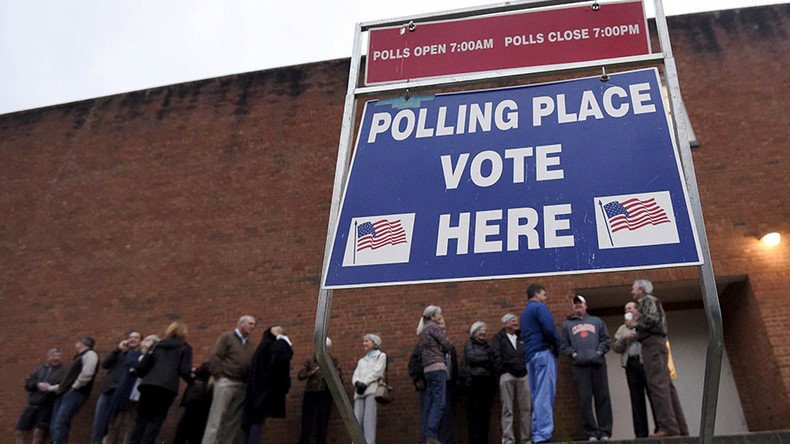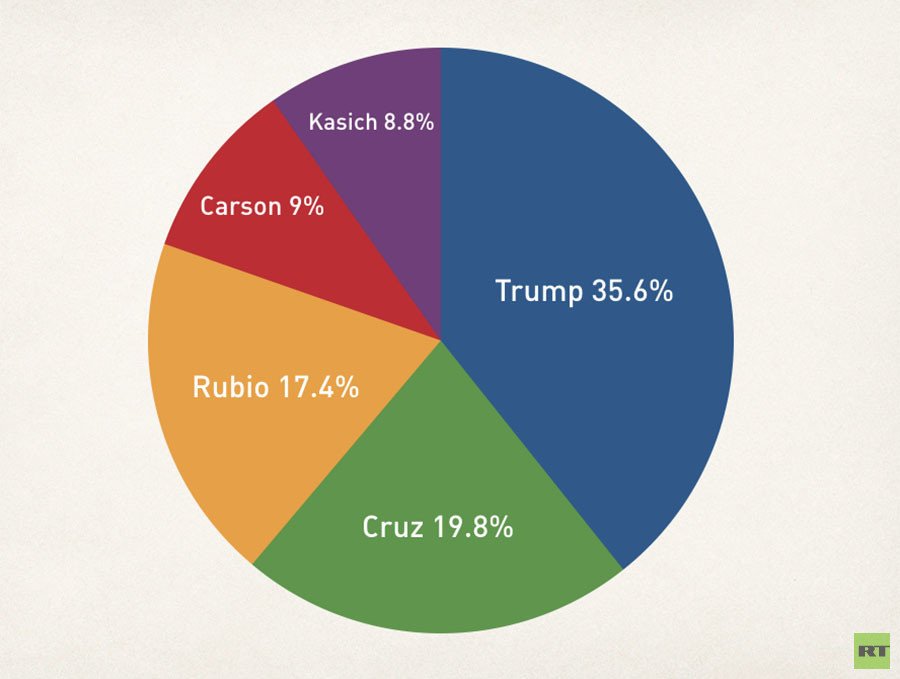Crunch time: 6 things to know about ‘Super Tuesday’

Republicans and Democrats will flock to the polls and meeting rooms on Tuesday across 12 states, where primaries and caucuses will make or break the seven candidates’ campaigns to become their party’s nominee in the 2016 presidential election.
What is Super Tuesday?
Traditionally, it is the Tuesday when more party delegates can be won than on any other day of the primary season. It is traditionally seen as a candidate’s first test of countrywide popularity.
This year, there will be ten states with either primaries or caucuses for both parties: Alabama, Arkansas, Georgia, Massachusetts, Minnesota, Oklahoma, Tennessee, Texas, Vermont and Virginia. Democrats alone will caucus in Colorado, while only Republicans will caucus in Alaska. There will be Republican caucuses in Colorado and Wyoming, but the results won’t be available until the next day.
With the large number of Southern states involved, the event has already been dubbed the “SEC Primary,” in a nod to the college sports’ Southeastern Conference. That said, this Super Tuesday will reach as far as the Pacific island territory of American Samoa, where 10 delegates for the Democratic nomination will be at stake.
Trump, Clinton heavy favorites going in to #SuperTuesdayhttps://t.co/WGy66C8p0j#USvoteAFP by @MichaelMathespic.twitter.com/MGsEZ12oVK
— AFP news agency (@AFP) February 29, 2016
What’s at stake?
On the Democrats’ side, this is a crucial test for the insurgent campaign of Vermont Senator Bernie Sanders, after Saturday’s crushing defeat in South Carolina to the preferred candidate of the party establishment, Hillary Clinton. Democrats will allocate 865 delegates in Tuesday’s voting – more than a third of the 2,383 required to secure the nomination.
Though only slightly behind Clinton in primary delegates won, Sanders is trailing badly in terms of “superdelegates” – party officials who are pledged separately from the popular vote. With those votes accounted for, Clinton is leading 544 to 85, according to AP.
On the Republican side, 595 delegates – almost half of the 1,237 needed for the nomination – will be decided on Tuesday. The largest single state at stake is Texas, with 155 delegates, followed by Georgia with 76 and Tennessee with 58. However, neither party allows states with primaries held before March 15 to allocate the votes under a “winner take all” system, so even a loss means getting some delegates.
Donald Trump currently leads the delegate count with 82. Florida Senator Marco Rubio and Texas Senator Ted Cruz are both hoping to emerge as the establishment-backed counter to Trump, adding to their count of 16 and 17 candidates, respectively – and pinning their hopes on their home states.
What do the polls say?
The latest CNN/ORC poll shows Clinton leading with 55 percent, and Sanders with 38 percent. The Vermont Senator is favored to carry his home state and is enjoying a surprise boost in Oklahoma, but Clinton is considered the overwhelming favorite to triumph elsewhere.
Among the Republicans, Trump has a convincing lead nationally. The CNN/ORC poll, concluded February 27, shows him at 49 percent – way ahead of Rubio at 16 and Cruz at 15 percent. An aggregation of poll results by Real Clear Politics shows Trump with a 15 percentage point lead nationwide, ahead of Cruz and Rubio. The two other candidates still in the race, Ohio Governor John Kasich and neurosurgeon Ben Carson, are polling in single digits.

If the past is any clue…
It is difficult to try and predict the results of this year’s contests based on previous primaries. There were no Democratic primaries in 2012, for one thing, because Barack Obama was up for re-election as the incumbent.
In the 2008 Super Tuesday – also called “Mega”, “Giga” and even “Tsunami,” since it involved 24 states, Hillary Clinton carried 834 delegates from 12 states, while Obama got 874 delegates in 11 states. Though Clinton eventually got slightly more popular votes, many of her previously pledged superdelegates defected to Obama, enabling him to lock in the nomination.
The 2012 Super Tuesday involved ten states, with the GOP establishment candidate Mitt Romney carrying six of them. Of the four states that will be involved in this year’s contest, Romney lost in two: in Oklahoma to Rick Santorum, and in Georgia to the native son New Gingrich. He won Alaska and Virginia.
Romney had secured enough delegates for a nomination by early May, and proceeded to lose to Obama by five million votes, 51.1 to 47.2 percent, that November.
When will we know?
Polls will generally close by 7:00pm local time – with the exception of Arkansas, which will close at 7:30pm local time – and the first results should be available within the hour or so. Most of the results ought to be known by 10:00pm Eastern (3:00am GMT), with the exception of Alaska and American Samoa.
What’s Next?
Winners and survivors of Super Tuesday have March 15 to look forward to, and the change of the delegate allocation to winner-take-all. Five big states will be up for grabs on the 15th: Florida, Illinois, Missouri, North Carolina and Ohio. Between them, they will account for 691 delegates for the Democrats and 367 for the Republicans.














